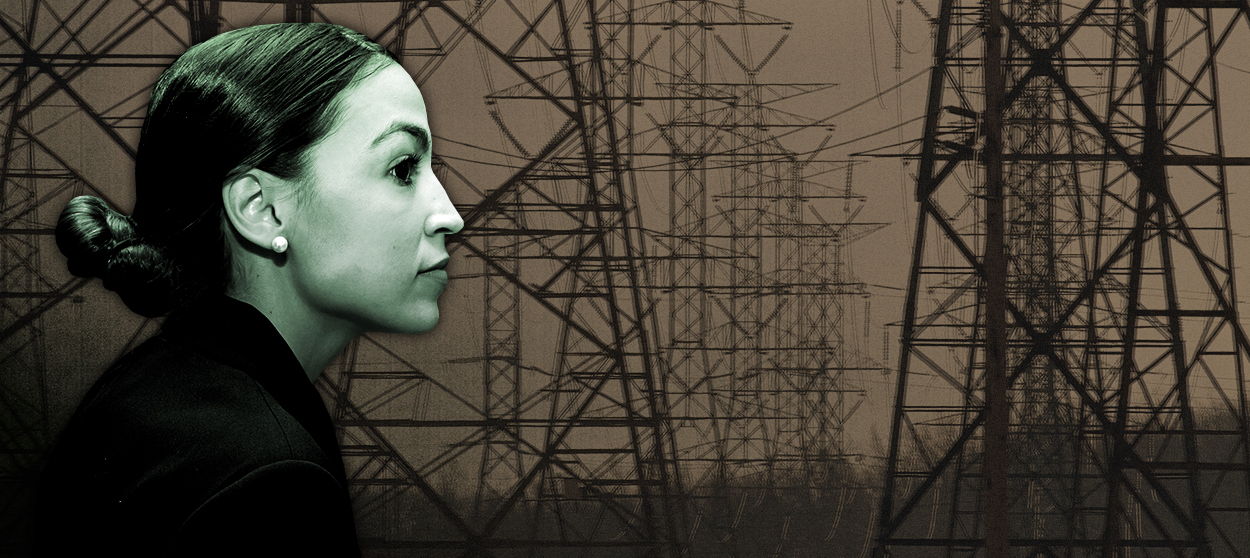The Green New Deal means uncomfortable choices
Every policy that could deliver significant benefits deserves strong consideration — even nuclear power


A free daily email with the biggest news stories of the day – and the best features from TheWeek.com
You are now subscribed
Your newsletter sign-up was successful
There is finally a legislative movement afoot to deal with climate change which has ambitions commensurate with the scale of the problem. It comes in the form of a draft Green New Deal resolution introduced by Democrats in both the House and the Senate, calling on the government "to achieve net-zero greenhouse gas emissions through a fair and just transition for all communities and workers."
As David Roberts notes at Vox, the resolution wisely emphasizes the moral foundations of climate policy (which has often been downplayed) and avoids picking unnecessary fights over policy details.
Nevertheless, strong climate policy will mean making some difficult decisions in the future. As the policy discussion gets going, all interested factions should start preparing themselves for this fact.
The Week
Escape your echo chamber. Get the facts behind the news, plus analysis from multiple perspectives.

Sign up for The Week's Free Newsletters
From our morning news briefing to a weekly Good News Newsletter, get the best of The Week delivered directly to your inbox.
From our morning news briefing to a weekly Good News Newsletter, get the best of The Week delivered directly to your inbox.
The reason is simple: America has put off climate policy for so long that nothing short of an all-out crash decarbonization program will suffice. That means every policy that could deliver significant benefits deserves strong consideration.
Hydropower is one example. Environmentalists have been strongly critical of hydro for years, for the understandable reason that many big dams have been horrible crimes against nature. But there is still a lot of additional zero-carbon power available through new projects and fitting out existing projects with new generators — almost 400 terawatt-hours even if we rule out national parks, wilderness areas, and wild and scenic rivers.
Nuclear power is another. The theoretical potential of nuclear is near-limitless — France has about the lowest carbon emissions of any rich country because most of its electricity comes from reactors. At the very least that means preserving the existing nuclear portfolio, which produces about 20 percent of U.S. power — still more than all renewable sources combined. Every nuclear plant that gets shut down puts the decarbonization goal significantly further out of reach.
However, the greens aren't the only ones who will have to swallow an uncomfortable policy or two. The nuclear boosters who argue that hundreds of new reactors are the obvious way to solve climate change are also wrong. They have not solved the industry's severe price problem, which has led to eye-popping cost bloat and outright abandonment of many projects. At a minimum the industry needs significant reform, and given how fast the cost of renewable power is falling, nuclear is at best suited for a secondary role (barring some spectacular technological breakthrough).
A free daily email with the biggest news stories of the day – and the best features from TheWeek.com
Natural gas also has to go, immediately. This has been trumped up as the cleanest fossil fuel, but it turns out when you account for the endemic methane leaks (which lets out a much more powerful greenhouse gas) in the drilling and distribution system, it's about as bad as coal in climate terms — and maybe even worse. It has no place in a Green New Deal portfolio. It should be killed off just like coal.
In discussions about climate change, I have noticed a tendency for people to resist the implications of just how bad it's going to be. It's perhaps most obvious among centrists like former Hillary Clinton adviser Jake Sullivan, who reacted with stunned disbelief at the idea that it will be necessary to cut out all fossil fuel usage by 2035. But it also can be seen in some other quarters, like novelist Jonathan Franzen's asinine argument that climate change advocacy is somehow harming birds. Nobody wants their particular ox to get gored.
The truth, though, is that we have no choice but to attack as hard as we can on all possible fronts. If we had gotten our act together 30 years ago when climate change became an undeniable problem, then we could have had a slower, more optimized approach. But we didn't. So climate policy means electric cars and a huge build-out of passenger rail. It means solar and wind and geothermal and hydro and (at least some) nuclear. It means meat needs to become drastically more expensive. It means a huge reduction in passenger flights.
Such a climate policy should, of course, be as broadly beneficial to society as possible. But it will mean some hard choices too.
Ryan Cooper is a national correspondent at TheWeek.com. His work has appeared in the Washington Monthly, The New Republic, and the Washington Post.
